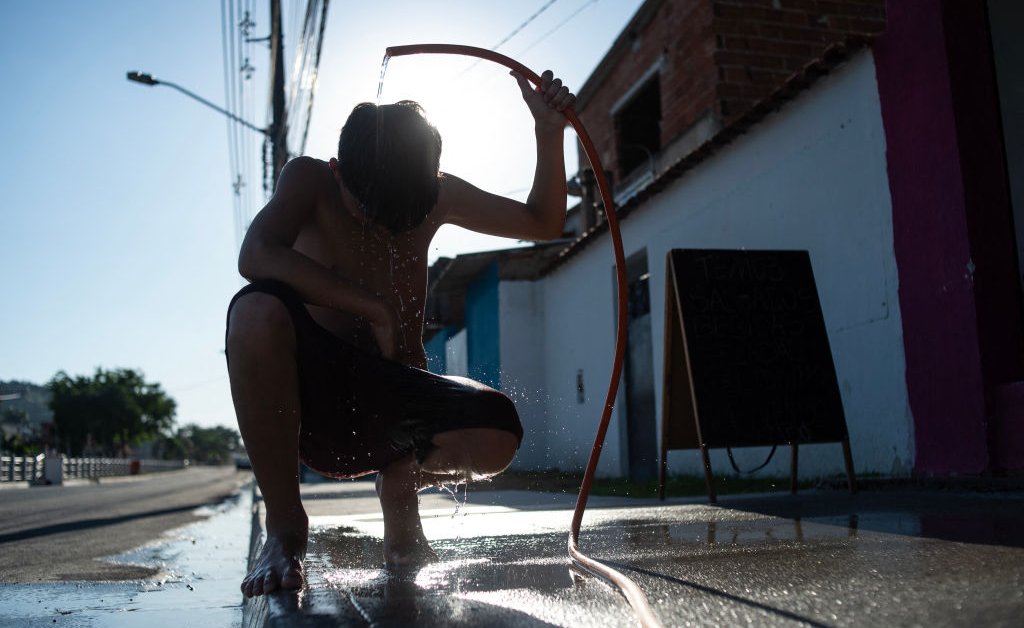Significant Climate Change Impact on Daily Lives: A Growing Global Concern
Climate change is no longer a distant threat; its impacts are increasingly felt in our daily lives across the globe. From extreme weather events to rising sea levels and dwindling resources, the consequences are far-reaching and demand immediate attention. This article delves into the significant ways climate change is affecting our everyday routines and explores potential solutions.
Extreme Weather Events: A New Normal?
One of the most visible impacts of climate change is the increase in frequency and intensity of extreme weather events. Heatwaves are becoming longer and more scorching, wildfires rage across vast landscapes with alarming regularity, and hurricanes and typhoons are gaining strength.
- Heatwaves: Prolonged periods of extreme heat directly impact human health, leading to heatstroke and respiratory illnesses. It also disrupts daily life, affecting outdoor work, transportation, and energy consumption. [Link to article about heatwave health impacts]
- Wildfires: Devastating wildfires not only destroy property and displace communities but also contribute to air pollution, impacting respiratory health across wide geographical areas. [Link to article on wildfire prevention and mitigation]
- Floods and Hurricanes: These catastrophic events cause widespread damage, disrupt infrastructure, and displace populations, leading to economic losses and social disruption. [Link to article on climate change and disaster preparedness]
The Economic Toll of Extreme Weather
The economic consequences of these events are staggering. Repairing infrastructure, providing disaster relief, and dealing with lost productivity place immense strain on national and local budgets. This burden disproportionately affects vulnerable populations and developing nations, exacerbating existing inequalities.
Rising Sea Levels and Coastal Erosion
The melting of glaciers and polar ice caps is causing a steady rise in sea levels, threatening coastal communities and infrastructure worldwide. Coastal erosion is accelerating, swallowing beaches, damaging homes, and contaminating freshwater sources.
- Displacement and Migration: Rising sea levels are forcing people to leave their homes and relocate, creating climate refugees and straining resources in already crowded areas. [Link to article on climate migration]
- Infrastructure Damage: Coastal infrastructure, including ports, roads, and power plants, is vulnerable to damage from rising sea levels and increased storm surges. This leads to disruptions in trade, transportation, and energy supply.
Food Security and Water Scarcity
Climate change is disrupting agricultural patterns, leading to reduced crop yields and impacting food security. Changes in rainfall patterns and increased drought are exacerbating water scarcity in many regions.
- Crop Failures: Extreme weather events, such as droughts and floods, can devastate crops, leading to food shortages and price increases. [Link to article on climate-resilient agriculture]
- Water Stress: Decreased rainfall and increased evaporation due to rising temperatures are stressing water resources, impacting agriculture, industry, and household water supplies. [Link to article on water conservation techniques]
What Can We Do?
Addressing the impacts of climate change requires a multifaceted approach involving both mitigation and adaptation strategies. Mitigation focuses on reducing greenhouse gas emissions, while adaptation involves adjusting to the unavoidable changes already underway.
- Transition to Renewable Energy: Shifting away from fossil fuels towards renewable energy sources like solar and wind power is crucial to reducing emissions.
- Sustainable Agriculture Practices: Implementing sustainable farming techniques can help enhance crop resilience to climate change.
- Investing in Climate-Resilient Infrastructure: Building infrastructure that can withstand extreme weather events is essential for protecting communities and economies.
- Promoting Climate Education and Awareness: Raising public awareness about the impacts of climate change and empowering individuals to take action is critical.
Conclusion:
The impacts of climate change are no longer subtle; they are profoundly affecting our daily lives. Addressing this challenge requires global cooperation, innovative solutions, and a collective commitment to creating a more sustainable future. Only through concerted action can we mitigate the worst effects of climate change and build a resilient world for future generations. Let's work together to make a difference.
